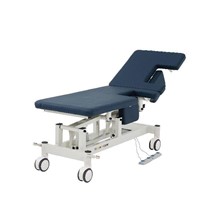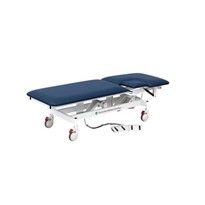Officially opened in May 2001, the new Mater Children’s Hospital (MCH) in Brisbane is a major tertiary referral centre with a 24 hour emergency department, an intensive care unit, modern operating theatres, and extensive inpatient and outpatient services.
Each year, over 15,000 children are cared for as inpatients by Mater Children’s Hospital, and in excess of 120,000 children are treated as outpatients. A further 32,000 children a year receive care in the emergency department, which is the busiest paediatric emergency department in Queensland.
Paediatric cardio services
MCH Simulation Educator, Mr Andrew Heasley reports that simulation technologies were introduced into the hospital in 2008, following Queensland Paediatric Cardio Services’ move to the new MCH facilities.
As few MCH medical staff were sufficiently trained in paediatric cardio, the realities of this move presented the hospital with a significant skills shortage. In response, Andrew and his team turned to advanced simulation technologies as a crucial risk management initiative.
In using simulation technology, MCH management were able to quickly up-skill their medical staff in a safe, and user friendly environment.
The end results were so successful that simulation training has been retained, and is now utilised as a supportive modality in most workshops and training sessions within the hospital.
Specialised training
For Andrew, one of the most useful elements of simulation technology is its capacity to animate specialty areas such as ECMO and Retrieval: "Simulation allows us to create life like experiences for specialist teams in fields such as ECMO and Retrieval, and then assess their readiness for real life situations," he said.
Andrew also notes that simulation technologies have significant implications for ensuring patient safety: "By getting the staff to practice on a manikin first, we can trouble shoot issues ahead of time. Simulation technologies make it possible to identify potential clinical problems as well as deficiencies in our processes and training," he added.
Another useful element of simulation is that it gives training staff the ability to recreate unusual medical situations and rare events and have their teams respond to them. Rather than waiting for real patients to present with unusual symptoms, simulation enables staff to take part in niche training initiatives. As Andrew points out, this capacity is, "excellent for team training, leadership, and role-based learning."
The way forward
Since its inception two years ago as a risk management strategy, simulation technologies are now being implemented across the entire MCH site. Andrew reports that although some medical staff were initially a little hesitant to engage with the technology, it is now becoming accepted as a normal part of staff training.
Additionally, Andrew has some timely advice for hospitals and training facilities that are about to embark on simulation training. Firstly, he recommends having a dedicated staff member take on the role of simulation co-ordinator in order to "take ownership of the training initiatives and promote them;" and secondly, he suggests dedicating a permanent space in which you can keep the manikins set up. "Having everything there and ready to go allows staff to engage in impromptu and opportunistic training activities, which isn’t possible without a dedicated space," he said.
Please note: The Mater’s Simulation Program is operated in collaboration with the Queensland Skills Development Centre.












